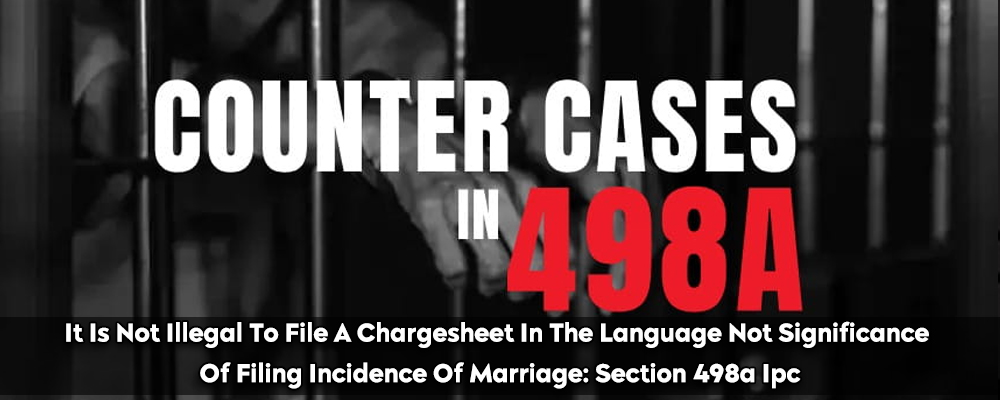While deciding the case CBI v. Narottam Dhakad [2023 INSC 770], it was observed by the Supreme Court that a chargesheet that has been filed in a language other than the language of the court or the language that the accused does not understand would not be illegal. It was observed by the Bench of Justices Abhay S. Oka and Rajesh Bindal that if the accused and his or her advocate are unable to understand the language in which the chargesheet has been filed, it could always be directed by the Court for the prosecution to provide the translated version of the chargesheet as well.
Need A Legal Advice
The internet is not a lawyer and neither are you. Talk to a real lawyer about your legal issue

Facts of the Case
- The matter came to the Court’s attention while deciding the appeal of the CBI against a judgment given by the Madhya Pradesh High Court, where it was held that Hindi is the only language of the Criminal Courts in the State, hence the accused has the right to seek a translated chargesheet in the Court’s Language, while the CBI filed the respective chargesheet in English.
- The Supreme Court held that the Language of the Court provided under Section 272 of the CrPC does provide guidelines as to what language has to be used by the investigative agencies or officers while maintaining their record of investigation.
- At the most, for a form to be submitted under Section 173 (2), the State Government can rule that the charge sheet should be filed in the official language of the State.
The Court while explaining the matter related to the language as provided by the CrPC, observed that
- When a copy of the report and documents under Sections 207 and 208 are provided to the accused, he or she has the opportunity to contend that he or she is not able to understand the particular language of the documents or records.
- However, concern must be raised at the earliest.
- In case the accused is being represented by an advocate who fully understands the language of the final report or charge sheet, there shall be no requirement of furnishing such a translation to the accused, as his advocate would be able to explain the contents of the charge sheet to the accused.
- When both the accused and his advocate do not understand the language in which the charge sheet has been filed, translation would be required
- The sole reason for providing the required translation is that the accused must get a fair opportunity to defend himself as per Article 21 of the Constitution. He must be aware of and have an understanding of the material against him that has been mentioned in the charge sheet.
- It also has to be noted that no one could claim default bail on the ground that the charge sheet has been filed within the period provided under Section 167 of the CrPC or any other relevant provision of the law in a language other than the language of the Court or the language that the accused does not understand, as such act is not illegal.
- The Court thus held that, with the facts of the case, not supplying the respective translations of the Chargesheet and other documents to the accused could be a matter of failure of justice.
If you want to any legal advice, you should contact Lead India. offers online information, free legal advice, and guidance with the law. If you contact Lila, you can directly talk to a lawyer for the advice needed. Ask a legal question for advice.





 Talk to a Lawyer
Talk to a Lawyer